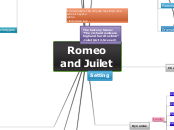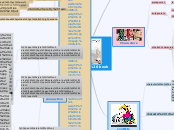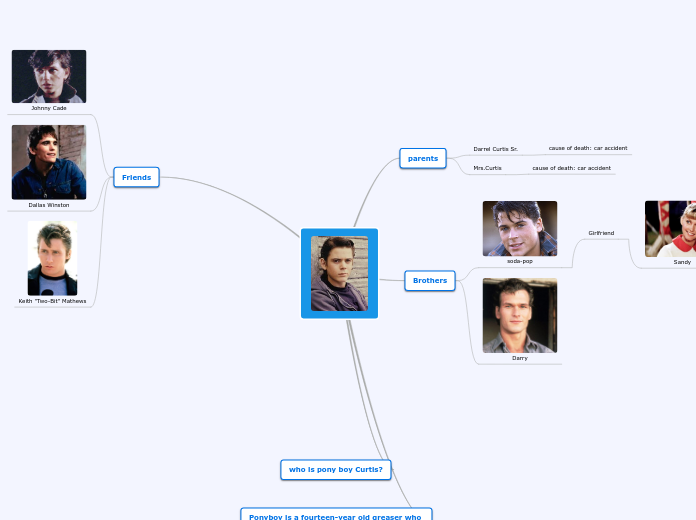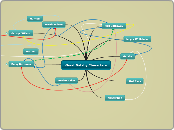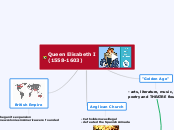Setting
The balcony Scene:
"The orchard walls are
high and hard to climb"
-Juliet (Act 2, Scene 2)
The two lovers can only express their love when they are
alone
-forbidden love
Romeo and Juilet
Themes
Chain of Being
Disturbance in the chain of being creates suspense in the play.
Romeo talks about defying stars, which is not appropriate to do because it is not good to challenge suprnatural powers
"Is it e'en so? Then I defy you, stars!"
Romeo and Juliet fall in love despite the conflict between their families and face the consequences later.
Love
Love is intense passion that could lead to tragic consequences.
Loyalty
Loyalty can change when your feelings do.
Honour: a lesson is learned from that one should always honor their neighbours and citizens and conflict between the citizens and neighbours could lead to destructing or tragic consequences.
Star-crossed lovers - The two lovers care about each other but cannot get together due to their circumstances.
Romeo and Juliet are both star crossed also as they cannot get together due to their circumstances (conflict between families).
Shah Jahan and Mumtaz Mahal
It took 32 years for building of Taj Mahal.
In memory of his beloved wife Shah Jahan built a magnificent monument for Mumtaz Mahal as a tribute which is known as “Taj Mahal”.
The match got solemnized in 1612 when Shah Jahan was 19 years old.
Romeo and Juliet also get married at this age.
He went to his father and declared that he wants to marry her.
Shah Jahan caught a glimpse of Mumtaz Mahal when he was 14 years old and fell in love with her.
This connects to Romeo and Juliet as Shah Jahan and Mumtaz Mahal were young lovers like Romeo and Juliet.
Historical Context
Literary Archetypes
Tristan and Isolde
He journeys to Ireland
He fights for the kingdom.
He won Isolde.
Tristan represents archetype of a hero
-Similarly in Romeo and Juliet there is a conflict between Montagues and Capulets but in a different context.
Pyramus and Thisbe
The hero's journey - They are both considered heroes of love
Abelard and Heloise
-A secret marriage is arranged between Heloise and Abelard.
Romeo and Juliet also marry each other secretly as well.
-When Heloise becomes pregnant, they realize it is not safe for her to remain in Paris. They flee for Brittany, Abelard’s place of birth.
-Abelard quickly becomes intrigued by Heloise’s and intelligence
-Intellectually gifted Heloise, who strives for knowledge, truth and the answer to the question of human existence.
-Abelard was a philosopher and Heloise was his student.
Abelard was 22 years older than Heloise.
There is a similarity between this love story and the love story of Romeo and Juliet according to the age factor. In this play, it is unusual for a man that old to marry a girl much younger than him. Similarly, in Romeo and Juliet, it is unusual for the characters that young to marry each other (According to modern world).
-Heloise was a french nun that was known for her love affair with Abelard and for the tragedy that separated them.
Mark Antony and Cleopatra
Defeated Cleopatra and Antony fled to Ireland Egypt, where they committed suicide.
Similarly, Romeo and Juliet commit suicide at the end of the play.
Octavian declared a war on Cleopatra and proclaimed Antony a traitor.
Unfriendliness caused between Antony and Octavian by Antony’s relation with Cleopatra caused a civil war between Antony and Octavian.
Despite Marc Antony’s marriage, he carried on a love affair with Cleopatra and bore 3 children with Cleopatra.
Marc Antony, was a Roman politician and general who played a critical role in the transformation of the Roman Republic from an oligarchy into the autocratic Roman Empire.
Plot Devices
Conflict
"Thou art thyself, though not a Montague"
Juliet (Act 2, Scene 2)
Here Juliet speaks about the family feud. She means that love is bigger than this feud.
Contrast
"brave Mercutio is dead"
"and Tybalt slain"
-Benvolio (Act 3, Scene 1)
"Give this ring to my true knight"
-Juliet (Act 3, Scene 3)
This contrast is tone of the play causes the
audience to be pulled in, because they know
something bad it going to happen, but they
don't know when
"and therefore women, being the weaker vessels, are ever thrust to the wall. Therefore I will push Montague's men from the weall and thrust his maids to the mall" (Act 1, Scene 1)
The prologue just detailed a tragedy that will occur,
which is immediately followed by silly, sexual humour
that intrigues the audience, and makes them wonder when this tragedy will happen.
Dynamics
MERCUTIO
Mercutio's character changes dramatically throughout the course of the play
He constantly changes between a happy and depressed mood, which loosely represents the mood of all characters in the play at the time
Family
Lady Montague and Romeo
When Romeo is exiled, Lady Montague dies of a broken heart
This suggests a deeper connection is present between the two than Juliet and her mother, or at the very least Lady M. cares for her son very much and does not want him exiled
Lord and Lady Montague
Unlike the Capulets' relationship, the Montagues seem to at least care for each other, since Lady M. prevents Lord M. from going to battle for fear of his safety
Lord and Lady Capulet
Their relationship seems to be unhappy, as Lady C. calls Lord C. an 'old man'
Romeo and Lord/Lady Montague
When Romeo is sad about Rosaline in the beginning
of the play, his parents are worried, but do not go and
help Romeo themselves, they ask Benvolio to help Romeo
This shows the lack of personal connection between Romeo and his parents, as they must ask his friend to make sure he is feeling alright
This distancing between Romeo and his parents is also mirrored in Juliet's relationship with her parents, as Lady Capulet cannot talk with Juliet unless the Nurse is also present
This is one of the main messages of the play,
since the children who have no parental figure
in their life end up making poor descisions
Juliet and Lady Capulet
Lady Capulet cannot talk to Juliet without the presence of the Nurse
Although Lady Capulet is Juliet's mother, their relationship is not good enough to even talk to each other by themselves
The nurse is the closest thing Juliet has to a mother, but the Nurse is far from the perfect motherly character
Juliet and Lord Capulet
Juliet begins as an obedient child, and Capulet loves her
Juliet then becomes rebellious to her father's wishes, causing him to fly into a rage and seeming disown her
Capulet only loves Juliet if she obeys him, but once she
goes against his wishes, he does not love her anymore
Shows the controlling nature of Capulet, as he wants to
protect his family name and does not want to lose power over his own daughter
Characters
Other
The Apothecary
Rosaline
Friar John
Prince Esclaus
Paris
Mercutio
Friar Lawrence
Capulet
Peter
Gregory
Sampson
Lady Capulet
Lord Capulet
Tybalt
The Nurse
Juilet
Montague
Abraham
Benvolio
Lady Montague
Lord Montague
Romeo
Rhetorical Devices
Dramatic Irony
"Here's to my love... thus with a kiss I die"
-Romeo (Act 5, Scene 3)
Here, Romeo kills himself because he loves Juliet so much
This draws the audience in because they know the truth, but Romeo doesn't
This also shows that love is destructive, because Romeo kills himself for Juliet, even though she is alive, but his love had blinded him.
Foreshadowing
"A plague o' both your houses"
-Mercutio as he dies (Act 3, Scene 1)
Forshadows Friar John's mistake
Foreshadows the tradgedy of both lovers
Imagery
Hand Imagery
"let lips do what hands do"
Romeo (Act 1, Scene 5)
This is an implied stage direction because Romeo and Juliet
join hands here as they are talking
"God joined my heart and Romeo's, thou our hands"
-Juliet (Act 4, Scene 1)
In Romeo and Juliet's relationship,
hands make decisions.
They are powerful because they can be
destructive; they join hands in marriage, Juliet takes a dagger into her hand
Light Imagery
"She speaks, yet she says nothing...
to twinkle in their spheres"
-Romeo (Act 2, Scene 1)
This light represents their love;
it gets rid of any kind of darkness
or struggle.
It gives hope.
Juliet later speaks about the fued
between families, this light could
get past that.
Here Romeo says that Juliet's eyes
speak for her.
They are like stars - close to heaven,
twinkling
Her eyes, like stars, speak-
reference to fate and the stars:
you can't control what they say, it's up to fate... like love
twinkling - they show signs of light,
signs of showing hope and love, just like
their relationship is right now.
"It is the East, and Juliet is the sun"
-Romeo (Act 2, Scene 1)
